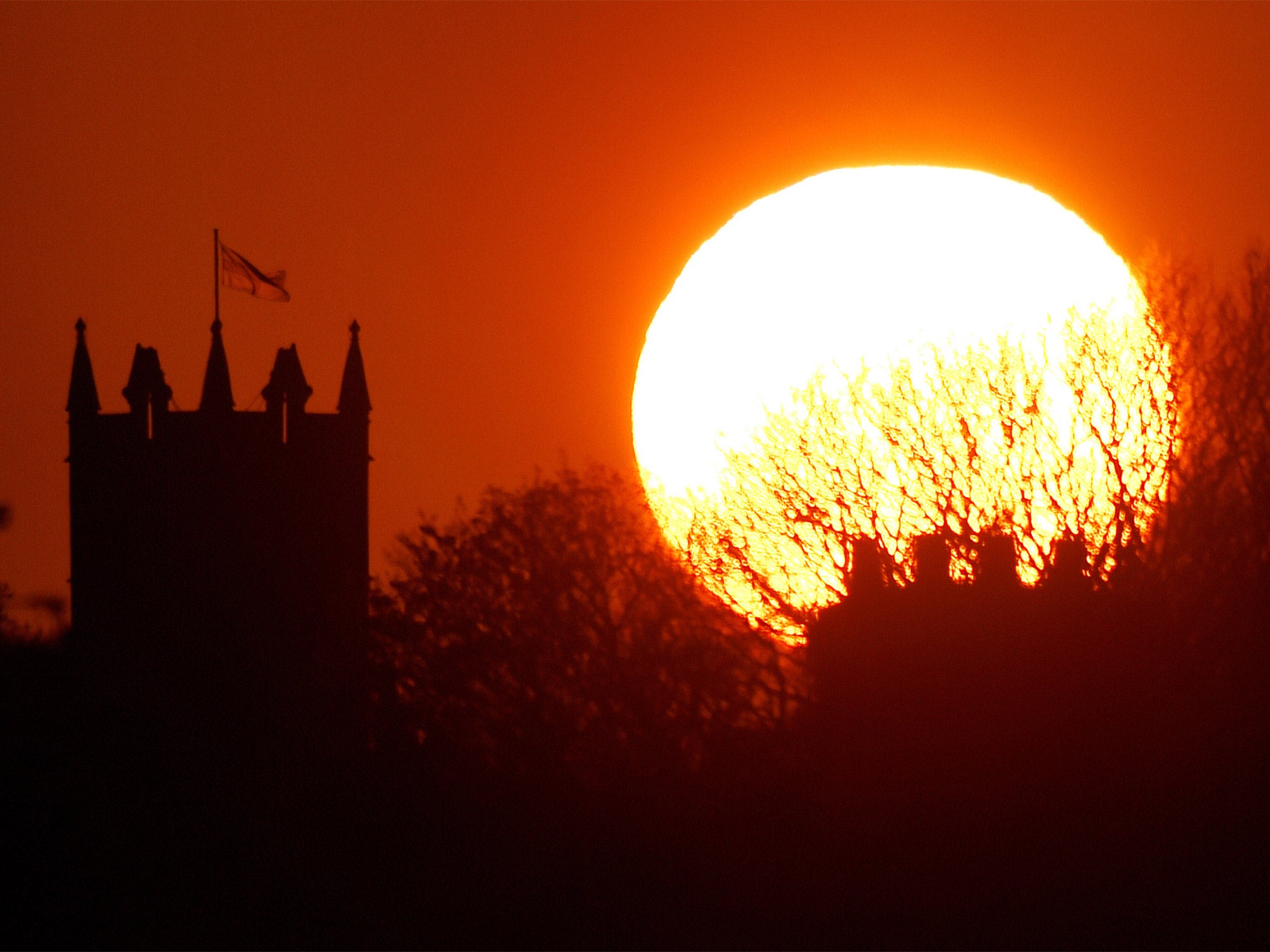Nature Studies: The world’s nations have one last chance to slow climate change
It appears that 2015 may be the hottest year ever recorded for the world, by some margin

Your support helps us to tell the story
From reproductive rights to climate change to Big Tech, The Independent is on the ground when the story is developing. Whether it's investigating the financials of Elon Musk's pro-Trump PAC or producing our latest documentary, 'The A Word', which shines a light on the American women fighting for reproductive rights, we know how important it is to parse out the facts from the messaging.
At such a critical moment in US history, we need reporters on the ground. Your donation allows us to keep sending journalists to speak to both sides of the story.
The Independent is trusted by Americans across the entire political spectrum. And unlike many other quality news outlets, we choose not to lock Americans out of our reporting and analysis with paywalls. We believe quality journalism should be available to everyone, paid for by those who can afford it.
Your support makes all the difference.It is becoming apparent that 2015 may be a critical year for the issue of climate change, in more ways than one. The obvious way, of course, is through the United Nations Climate Change Conference (Cop21) opening in Paris in six months, where the world community will try to agree a legally binding deal to limit the carbon emissions causing the atmosphere to warm (and for which the Global Apollo Programme to lower the cost of low-carbon energy, which we report on today, might play a vital role).
The Paris conference may be the final chance the world gets to keep rising temperatures below the agreed danger threshold of 2C above the pre-industrial level. The last attempt to cut such a deal, at Copenhagen in 2009, collapsed amid fierce argument about who should do what, between the developed countries, led by the Americans, and the developing nations, led by the Chinese.
This time around, some of the auguries are better, not least because last November the Americans and the Chinese announced their own bilateral climate accord, each agreeing to cut their carbon dioxide (CO2) emissions to a greater degree than at any point before and to work together to reach agreement. This is vital because these are the two biggest carbon emitters, between them accounting for 45 per cent of the global total (China with 29 per cent, and the US with 16 per cent).
If there is a major obstacle remaining, it is the third-biggest emitter, India, currently with 8 per cent of the total, and rising. For India stresses that its prime national objective is economic development to pull its 1.25 billion people out of poverty, and, at the moment, that will be powered by burning cheap coal. Whether or not India’s Prime Minister, Narendra Modi, will agree to have his country’s vital development constrained by a legally binding emissions treaty remains to be seen; it looks very doubtful.
However, there is something that may comprehensively alter the mood music of Cop21, and give 2015 another significance for climate change altogether: this may be the year when the pause in the rapid progress of rising temperatures, which began after 1998, may be over.
The fact that the soaring world temperatures of the 1980s and 1990s began to flatline has puzzled climate scientists (and given comfort to climate sceptics). Computer models predicted that the mercury would steadily go up as carbon poured into the sky, and pour it has – 40 billion tons a year, now; and two months ago the level of atmospheric CO2 crossed 400 parts per million (ppm) for the first time (when scientists began to measure it in 1958 it was 315ppm). It is likely that its effect is being buffered in some way, perhaps with increased atmospheric heat being absorbed by the deep oceans.
But climate scientists’ view has always been that the obvious rise in global air temperatures will, sooner or later, resume; and there are signs that this is happening now. What might seem like such a sign is India’s current heatwave, one of the worst in its history, which, with temperatures approaching 50C, has claimed nearly 2,000 lives in 10 days; but this may be part of natural climate variability, and may end with the monsoon. We are on surer ground with the temperature figures. It appears that 2015 may be the hottest year in history recorded for the world, by some margin.
According to the US National Oceanic and Atmospheric Administration: “The first four months of 2015 was the warmest such period on record across the world’s land and ocean surfaces, at 0.80C (1.44F) above the 20th-century average, surpassing the previous record of 2010 by 0.07C (0.13F).” Several countries have already experienced national record temperatures, and on 14 March Antarctica experienced its warmest recorded day, at 17.4C (63.3F).
Dr Johnson famously said that “when a man knows he is to be hanged in a fortnight, it concentrates his mind wonderfully”. If 2015 is the year in which climate change resumes its dramatic upward march, it may concentrate a lot of minds in Paris, come December.
Join our commenting forum
Join thought-provoking conversations, follow other Independent readers and see their replies
Comments